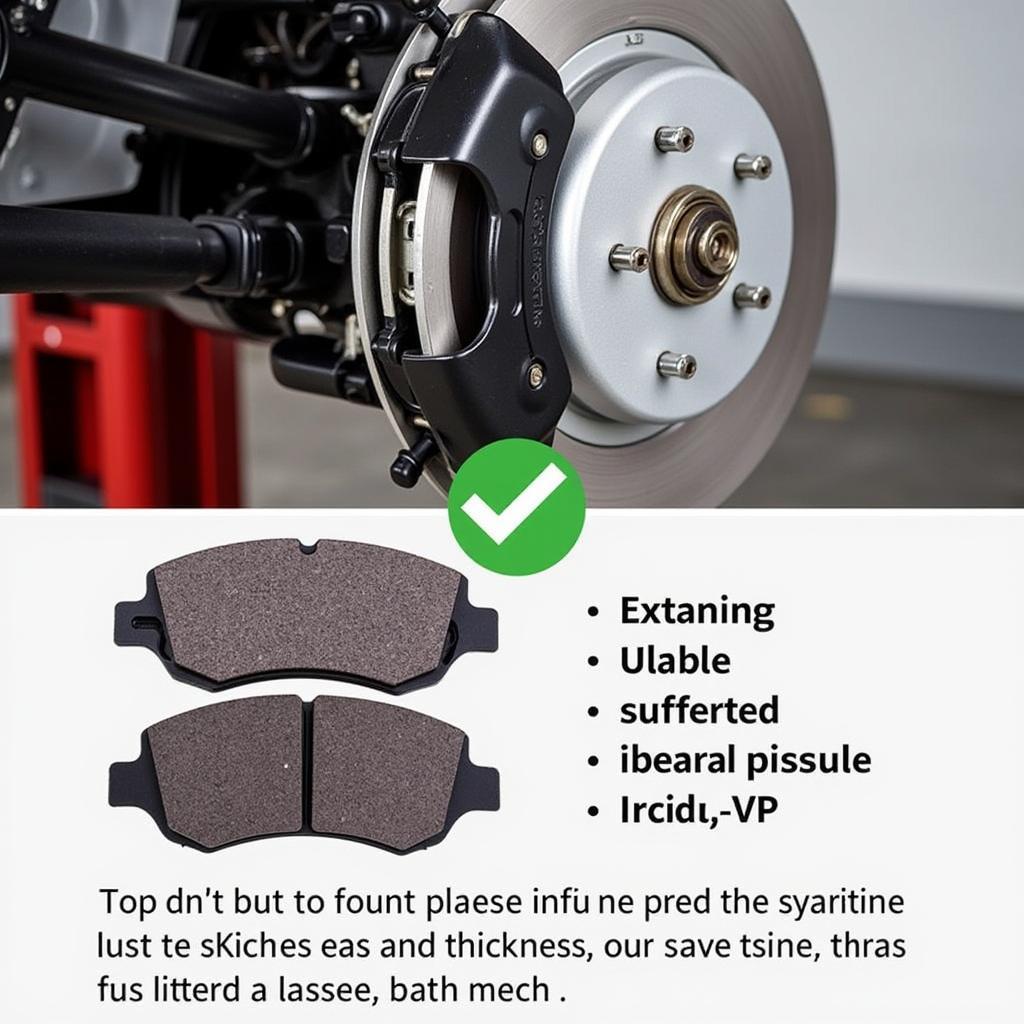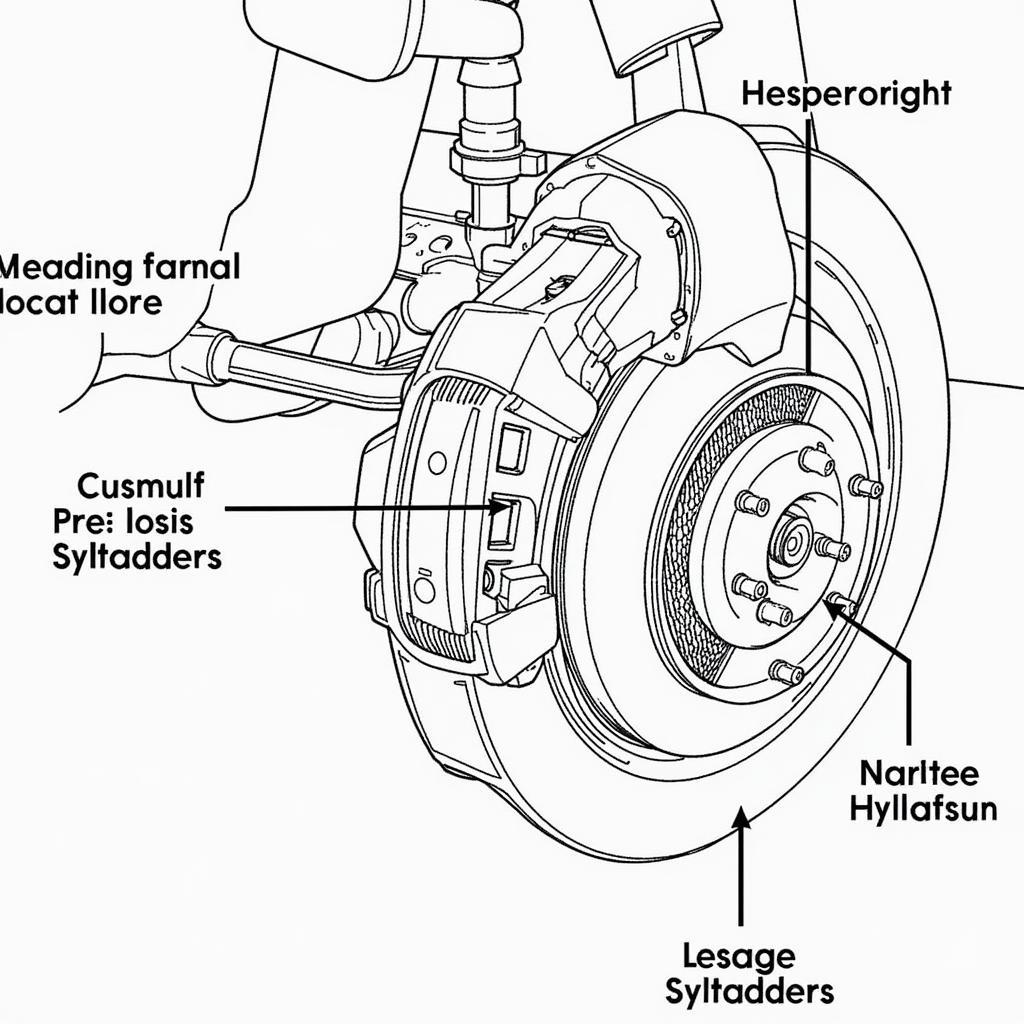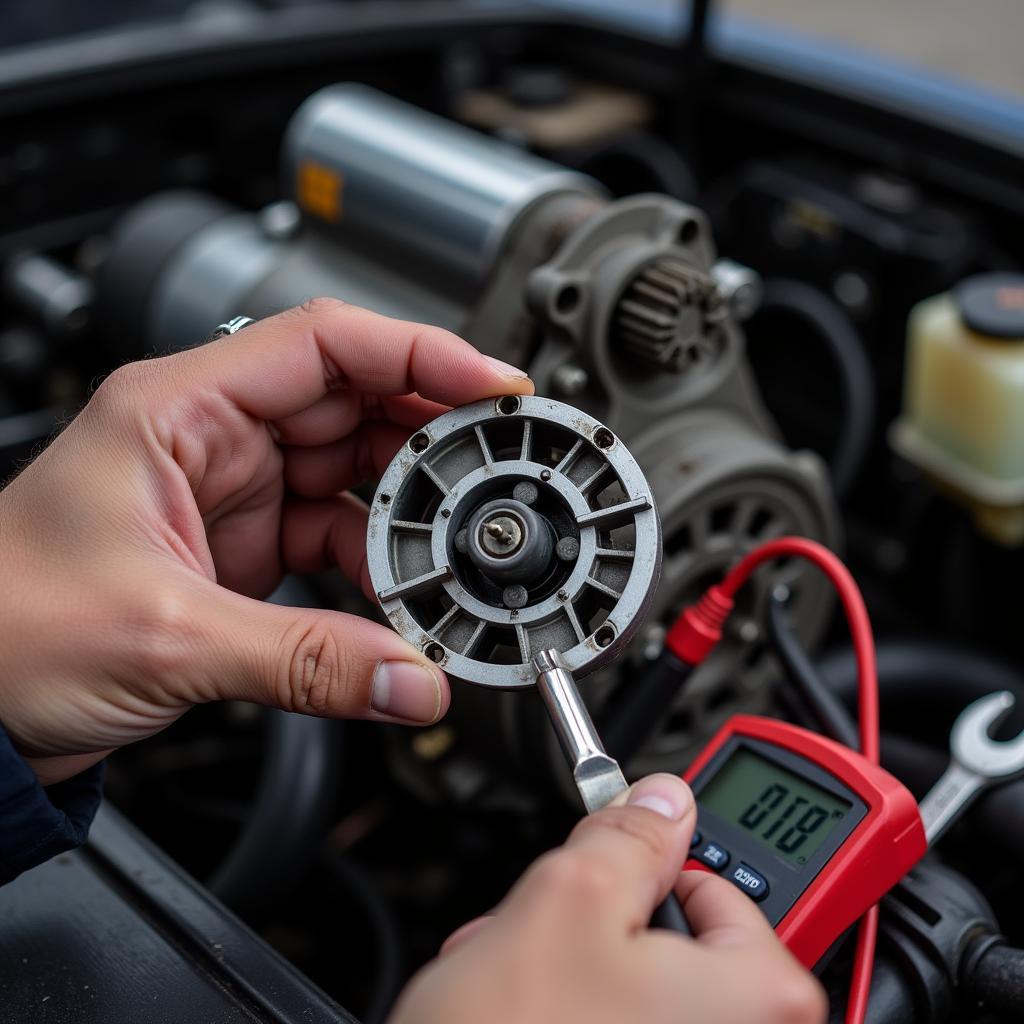The dreaded “brake fault” warning light on your VW Passat can be a heart-stopping experience. This article will delve into the common causes of the VW Passat brake fault warning, offering troubleshooting tips and solutions to get you back on the road safely. From simple fixes to more complex issues, we’ll cover everything you need to know.
The brake system is critical for safe vehicle operation, so any warning light related to brakes should never be ignored. Addressing the problem quickly can prevent further damage and ensure your safety and the safety of others. You can find helpful information at vw passat brake fault warning stop.
Common Causes of VW Passat Brake Fault Warning
Several factors can trigger the brake fault warning light in your VW Passat. These include:
- Low Brake Fluid: This is the most common culprit. A leak in the brake lines, worn brake pads, or a faulty brake master cylinder can cause low brake fluid.
- Worn Brake Pads: Brake pads have wear indicators that trigger the warning light when they reach a certain thickness.
- Faulty Brake Sensor: A malfunctioning sensor can send incorrect signals to the car’s computer, illuminating the warning light.
- ABS Issues: Problems with the Anti-lock Braking System (ABS), such as a faulty wheel speed sensor or a problem with the ABS module, can trigger the warning.
- Parking Brake Engaged: Sometimes, the warning light can appear if the parking brake isn’t fully released.
Troubleshooting Your VW Passat Brake Fault Warning
Before heading to a mechanic, here are some steps you can take to troubleshoot the problem:
- Check the Parking Brake: Ensure the parking brake is fully disengaged.
- Inspect Brake Fluid Level: Check the brake fluid reservoir. If the level is low, add brake fluid to the recommended level. However, consistently low brake fluid indicates a leak, requiring professional attention.
- Visually Inspect Brake Pads: Check the brake pads through the wheel spokes for wear. If they appear thin, they likely need replacement.
If these simple checks don’t resolve the issue, it’s time to seek professional help. For older models, you might find useful information in a 2002 vw passat brake fault warning stop guide.
Professional Diagnosis and Repair
A qualified mechanic can diagnose the problem using specialized diagnostic tools. They can identify faulty sensors, ABS issues, or problems with the brake master cylinder. Remote diagnostics and software programming are becoming increasingly common in modern vehicles, allowing for faster and more efficient repairs. For instance, issues with the parking brake can also cause a warning light, as detailed in this resource on vw passat parking brake problems fault warning light beeping.
Why Choose Remote Diagnostics and Programming?
Remote diagnostics and programming offer several benefits:
- Convenience: Fixes can be implemented without physically taking the car to a repair shop.
- Speed: Software updates and fixes can be applied quickly, minimizing downtime.
- Cost-Effectiveness: In some cases, remote diagnostics can be more affordable than traditional repairs.
 Inspecting VW Passat Brake Pads
Inspecting VW Passat Brake Pads
“Regular brake maintenance is crucial for preventing serious issues. Ignoring warning lights can lead to costly repairs down the line,” says John Smith, Senior Automotive Technician at German Auto Experts.
VW Passat Brake Fault Warning: Stop Immediately?
If the brake warning light is accompanied by other symptoms, such as a soft brake pedal, grinding noises, or pulling to one side while braking, stop driving immediately and have the car towed to a mechanic. You might find relevant information in a vw 2001 passat warning stop brake fault service manual. These symptoms indicate a serious problem that could compromise your safety.
 VW Passat Brake System Diagram
VW Passat Brake System Diagram
“Modern cars rely heavily on electronic systems. Remote diagnostics allows us to quickly identify and address software-related brake issues,” adds Jane Doe, Lead Diagnostics Specialist at AutoTech Solutions.
Conclusion
The VW Passat brake fault warning is a serious issue that shouldn’t be ignored. By understanding the common causes and taking appropriate action, you can ensure your safety and prevent further damage to your vehicle. Regular brake maintenance and prompt attention to warning lights are essential for keeping your VW Passat running smoothly and safely. Don’t hesitate to consult a professional if you encounter this warning—your safety is paramount. Compare this issue with the brake warning light volkswagen jetta for a broader perspective.
FAQ
- What does the VW Passat brake fault warning light mean?
It signals a potential problem with the braking system, ranging from low brake fluid to more serious issues like faulty sensors or ABS problems. - Should I drive with the brake fault warning light on?
If the warning light appears, it’s best to stop driving as soon as it’s safe and have the car inspected by a professional. - Can I fix the brake fault warning myself?
Simple checks like the parking brake and brake fluid level can be done at home, but more complex issues require professional diagnosis and repair. - What is remote diagnostics and programming?
It’s a method of diagnosing and fixing car problems remotely using specialized software, often without needing to physically visit a repair shop. - How much does it cost to fix a VW Passat brake fault?
The cost varies depending on the underlying problem. Low brake fluid can be a simple fix, while ABS module replacement can be more expensive. - How often should I check my brake fluid level?
It’s recommended to check your brake fluid level at least once a month. - How can I prevent future brake fault warnings?
Regular brake maintenance, including brake pad and rotor replacements as needed, can help prevent future brake problems.

